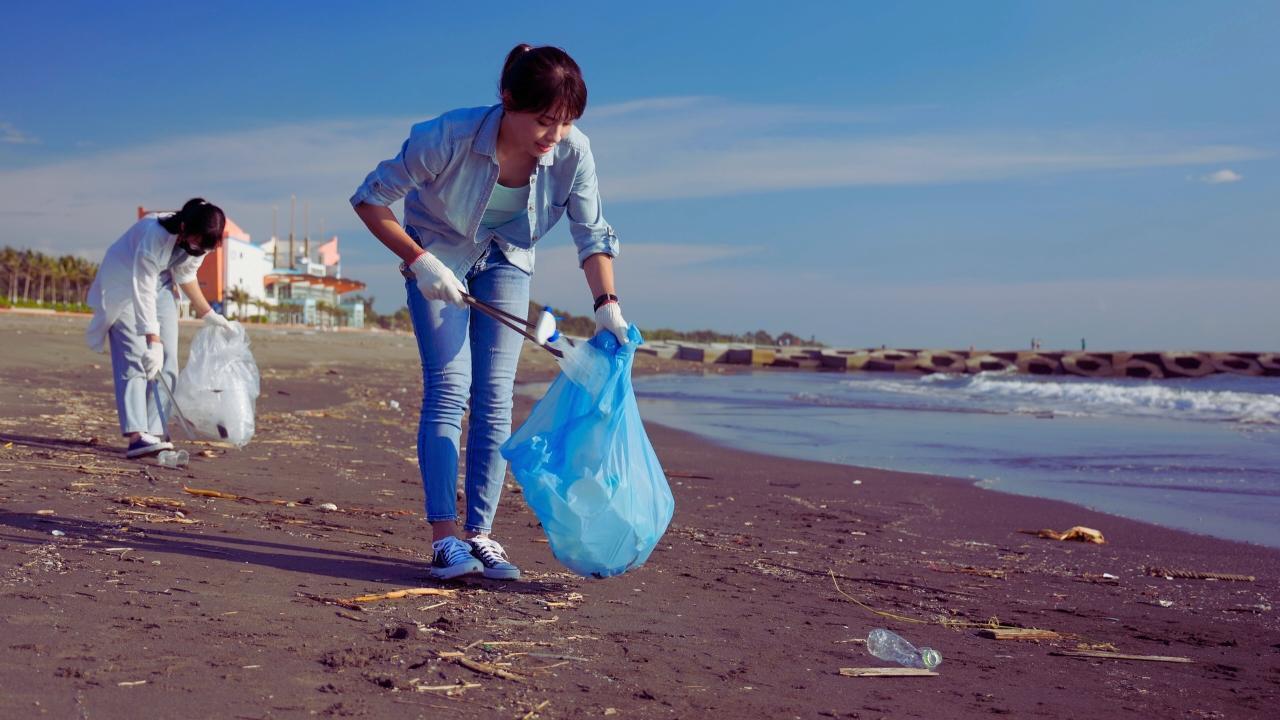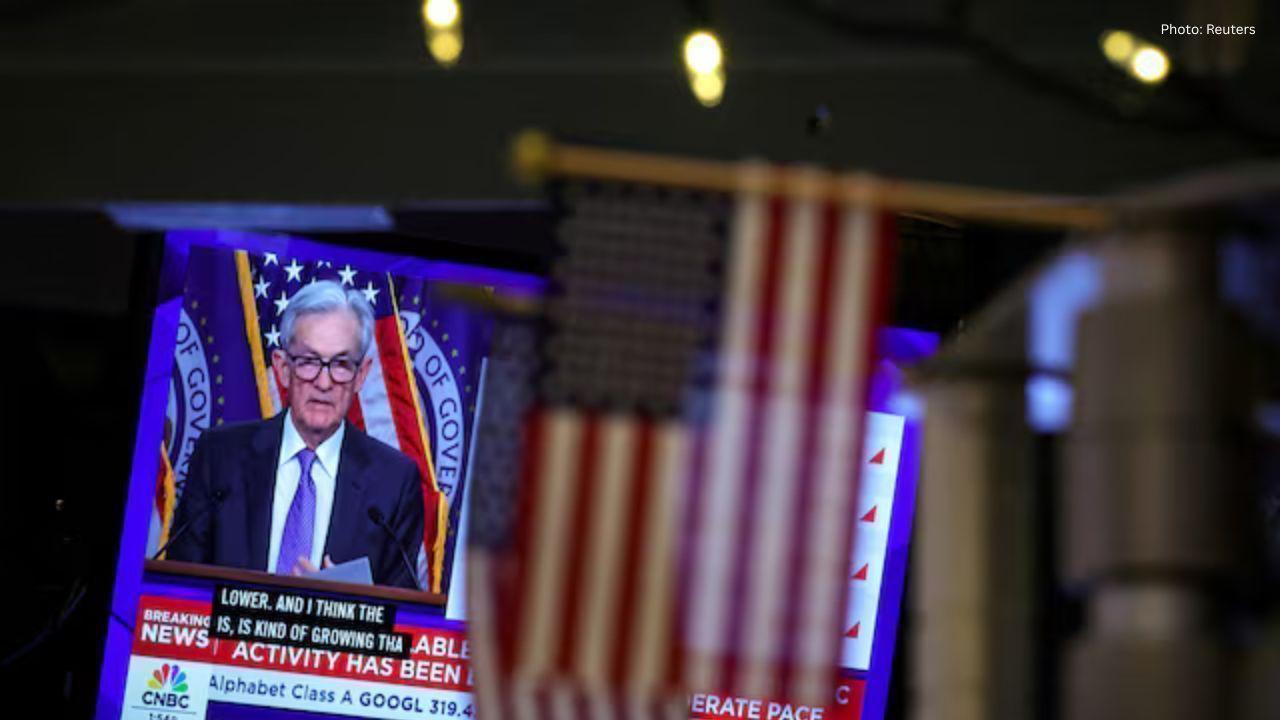You have not yet added any article to your bookmarks!

Join 10k+ people to get notified about new posts, news and tips.
Do not worry we don't spam!

Post by : Anis Farhan
For decades, headlines about the state of the world’s oceans have been filled with alarming facts—microplastics in fish, plastic islands floating in the Pacific, and countless marine animals strangled by discarded waste. However, for the first time in years, there is some hopeful news. A recently compiled global report reveals that ocean plastic levels have decreased by 12% over the past five years. This decline, while modest, signals that collective action through clean-up drives, international policies, and public engagement is beginning to bear fruit. It shows that humanity’s efforts, though far from complete, are not in vain.
To truly appreciate this achievement, one must first understand the enormity of the crisis. For decades, an estimated 11 million metric tons of plastic waste has entered the ocean annually. Plastics, unlike organic waste, do not decompose naturally. Instead, they fragment into microplastics, which infiltrate marine ecosystems, food chains, and even human bodies.
The Great Pacific Garbage Patch became a global symbol of this crisis, covering an estimated 1.6 million square kilometers. Many experts had predicted that by 2050, the weight of plastic in the ocean could surpass that of fish if unchecked. Against such dire forecasts, a measurable reduction in waste is a significant achievement.
The 12% reduction is largely credited to massive clean-up campaigns across coastal regions and rivers—the two main channels through which plastic enters the oceans. Initiatives like large-scale river interception projects in Asia, volunteer beach clean-ups in Africa, and technologically advanced ocean-cleaning vessels in Europe have combined to extract millions of kilograms of plastic from marine environments.
In Southeast Asia, for instance, coastal communities have mobilized youth and fishing groups to actively collect waste before it drifts offshore. In Latin America, river netting projects have intercepted waste in major waterways like the Amazon tributaries. These efforts show that localized action, when multiplied globally, creates measurable outcomes.
Clean-up alone cannot solve the issue. Policymakers worldwide have recognized this and implemented bans, taxes, and restrictions on single-use plastics. Countries like Kenya, Rwanda, and the European Union bloc have enforced some of the strictest plastic bag bans globally. Meanwhile, China has tightened rules on plastic packaging, and Canada recently rolled out phased restrictions on disposable cutlery and straws.
Perhaps most impactful has been the rise of Extended Producer Responsibility (EPR) laws, which force manufacturers to take accountability for post-consumer plastic waste. These regulations are pushing corporations to design recyclable, biodegradable, or reusable packaging. As a result, less plastic is entering supply chains and, eventually, the oceans.
Multinational corporations are increasingly embracing sustainability pledges in response to consumer demand and regulatory pressure. Beverage companies are experimenting with plant-based bottles, retail giants are adopting paper and reusable bags, and startups are leading in creating biodegradable alternatives.
Technological innovation has also contributed. AI-powered sorting systems in recycling plants, chemical recycling that breaks plastics back into usable raw materials, and bio-based plastic alternatives are helping reduce the overall plastic footprint. Although these solutions are still in their early stages, their potential is undeniable in shaping a plastic-free future.
The reduction also reflects changing consumer habits. Campaigns highlighting the dangers of single-use plastics have struck a chord with younger generations especially. Consumers are increasingly carrying reusable bottles, avoiding unnecessary packaging, and supporting eco-friendly brands.
Documentaries, social media campaigns, and grassroots activism have played a pivotal role in this cultural shift. Movements like "Plastic-Free July" and viral campaigns showcasing marine animals suffering due to plastic entanglement have triggered global outrage, which in turn influenced policy and corporate behavior.
Despite the encouraging numbers, the problem is far from solved. Over 80% of marine plastic still originates from land-based sources, primarily rivers in Asia and Africa. Many developing nations lack the infrastructure to manage waste effectively, leading to open dumping and uncontrolled leakage into waterways.
Furthermore, microplastics present a more insidious challenge. Even if large-scale clean-up continues, the fragmentation of existing waste ensures that oceans remain polluted for decades. Scientists are only beginning to understand the long-term impacts of microplastic ingestion on human health, but early studies suggest potential hormonal disruptions, respiratory issues, and even links to cancer.
The financial side of the story also provides important context. Plastic is cheap, durable, and versatile—qualities that have made it indispensable across industries. Replacing it at scale often involves higher costs, which discourages some businesses from making the shift.
However, reports show that investing in waste reduction and clean-up yields strong economic returns. A healthier ocean boosts fisheries, tourism, and coastal economies. It also reduces government spending on waste management and environmental health. The World Bank estimates that ocean health directly contributes billions of dollars annually to global GDP. Thus, the economics of reducing plastic pollution are not just environmentally necessary but financially sound.
Experts caution that the 12% decline should not breed complacency. Maintaining and accelerating this momentum will require stronger global cooperation, particularly in regions with weak waste management systems. Richer nations must provide funding and technology to developing countries to help them scale recycling and disposal facilities.
International treaties, similar to the Paris Agreement on climate change, may also be necessary to set binding commitments on reducing plastic pollution. A legally binding global plastics treaty is already under discussion at the United Nations, with the goal of finalizing an agreement by the late 2020s. If successful, this could cement a long-term strategy for addressing marine plastics.
The symbolism of this decline is powerful. It demonstrates that human action—through science, policy, and community activism—can indeed reverse damage once thought inevitable. For children growing up today, this moment signals that their future oceans might not be defined solely by pollution and decay. Instead, they could inherit seas that are gradually healing, brimming once again with biodiversity and free from the scourge of plastic.
This milestone should therefore serve as a rallying point for governments, corporations, and citizens alike. While 12% is not the end goal, it is proof that the tide can turn if efforts remain strong and united.
This article is intended for informational and educational purposes only. While it draws upon credible reports and research findings, the figures and interpretations provided should not be considered absolute. Readers are encouraged to consult scientific studies and environmental organizations for more detailed data.










Rashmika Mandanna, Vijay Deverakonda Set to Marry on Feb 26
Rashmika Mandanna and Vijay Deverakonda are reportedly set to marry on February 26, 2026, in a priva

FIFA Stands by 2026 World Cup Ticket Prices Despite Fan Criticism
FIFA defends the high ticket prices for the 2026 World Cup, introducing a $60 tier to make matches m

Trump Claims He Ended India-Pakistan War, Faces Strong Denial
Donald Trump says he brokered the ceasefire between India and Pakistan and resolved eight wars, but

Two Telangana Women Die in California Road Accident, Families Seek Help
Two Telangana women pursuing Master's in the US died in a tragic California crash. Families urge gov

Ranveer Singh’s Dhurandhar Roars Past ₹1100 Cr Worldwide
Ranveer Singh’s Dhurandhar stays unstoppable in week four, crossing ₹1100 crore globally and overtak

Asian Stocks Surge as Dollar Dips, Silver Hits $80 Amid Rate Cut Hopes
Asian markets rally to six-week highs while silver breaks $80, driven by Federal Reserve rate cut ex